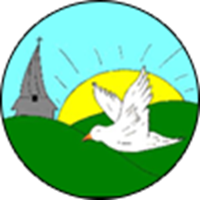Intent
At Cleobury Mortimer Primary School, our curriculum sets out: the significant and key knowledge that pupils should know and remember as well as the skills that the children will develop and build on; the key concepts that children will return to in different contexts and year groups; the prior learning that the children can build on; the vocabulary that will be introduced as well as the sequencing and progression of the units to be taught.
Cleobury Mortimer Primary School’s French scheme of work aims to instil a love of language learning and an awareness of other cultures. We want pupils to develop the confidence to communicate in French for practical purposes, using both written and spoken French.
Through our scheme of work, we aim to give pupils a foundation for language learning that encourages and enables them to apply their skills to learning further languages, developing a strong understanding of the English language, facilitating future study and opening opportunities to study and work in other countries in the future.
Our scheme of work supports pupils to meet the national curriculum end of Key stage 2 attainment targets.
Implementation
At Cleobury Mortimer Primary School, the chosen language is French.
Our French scheme of work is designed with six strands that run throughout.
These are:
- Speaking and pronunciation
- Listening
- Reading and writing
- Grammar
- Intercultural understanding
- Language detective skills
Throughout the scheme, pupils are given opportunities to communicate for practical purposes around familiar subjects and routines. The scheme provides balanced opportunities for communication in both spoken and written French, although in Year 3 the focus is on developing oral skills, before incorporating written French in Year 4 and beyond.
The scheme is a spiral curriculum, with key skills and vocabulary revisited repeatedly with increasing complexity, allowing pupils to revise and build on
their previous learning. Cross-curricular links are included throughout our French units, allowing children to make connections and apply their language skills to other areas of their learning.
Lessons are taught on a weekly basis, incorporating a range of teaching strategies from independent tasks, paired and group work including role-play, language games and language detective work. Our scheme of work focuses on developing language detective skills and developing an understanding of French grammar, rather than on committing to memory vast amounts of French vocabulary.
Impact
The impact of children’s progress and their ability to know more and remember more will be visible through a range of methods. These may include end of unit assessments or quizzes, hot and cold tasks, spoken responses, progress over time in pupils’ books, extended writing or even an end of unit project.
The impact of our scheme can be monitored through both formative and summative assessment. Children’s progress will be recorded at the end of each unit.
By the end of Key Stage 2, pupils should leave school equipped with a range of language-learning skills.
The expected impact of following the scheme of work is that children will:
Be able to engage in purposeful dialogue in practical situations (e.g., ordering in a cafe, following directions) and express an opinion.
Make increasingly accurate attempts to read unfamiliar words, phrases, and
short texts.
Speak and read aloud with confidence and accuracy in pronunciation.
Demonstrate understanding of spoken language by listening and responding
appropriately.
Use a bilingual dictionary to support their language learning.
Be able to identify word classes in a sentence and apply grammatical rules they have learnt.
Have developed an awareness of cognates and near-cognates and be able to
use them to tackle unfamiliar words in French, English, and other languages.
Be able to construct short texts on familiar topics.
Meet the end of Key Stage 2 stage expectations outlined in the national
curriculum for Languages.

